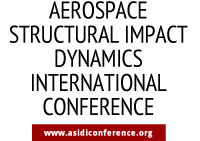CALL FOR PAPERS 2023
ASIDIC Call for Papers 2023
DEADLINE: January 15th, 2023
ABSTRACT SUBMISSION REQUIREMENTS:
All abstracts submitted for the 2023 edition of the ASIDIC Conference must meet the following requirements in order to be considered:
• Criteria for evaluation: All papers will be considered, but you must submit an EXTENDED ABSTRACT consisting of 500-1,000 words, along with the author’s name(s), company/institution, short author bio, and contact details.
• The submission must include sufficient detail to demonstrate to the conference scientific committee the purpose of the paper, the technical foundation for the topics to be discussed, any preliminary results to date, and the expected results of the final paper, including key figures, and references, as appropriate.
ABSTRACT SUBMISSION INSTRUCTIONS:
• Abstract submissions will be accepted electronically via email at: [email protected]
The deadline for receipt of abstracts via electronic submittal is January 15th. 2023.
If you have any questions, wish to discuss your proposal or to submit your abstract please send us an email: [email protected]
PLEASE NOTE: IF YOU HAVE SUBMITTED YOUR ABSTRACT, BUT DID NOT RECEIVE A CONFIRMATION EMAIL, PLEASE RESEND YOUR ABSTRACT VIA THIS EMAIL ADDRESS: [email protected]
IMPORTANT INFORMATION:
ABSTRACT DUE:
January 15th, 2023.
ABSTRACT SELECTION & FEEDBACK
February 5th, 2023.
CONFERENCE INFORMATION & LATEST UPDATES
www.asidiconference.org
FINAL CONFERENCE PAPER DUE
May 5th, 2023
ABSTRACT SUBMISSION VIA EMAIL AT:
The Conference Is Targeted Towards the Interests of:
Regulatory Agencies
Research Institutions
Aerospace Manufacturers
Original Equipment Manufacturers (OEMs)
Software Developers
Innovative Engineering Technology Providers
The conference program will cover the following topics:
I. Aerospace Crashworthiness with a focus on Commercial Aviation and Advanced Air Mobility Applications:
– Crashworthiness of Composites and Metallic Aerospace Structures:
i. Structural Design
ii. Experimental and Computational Methods
iii. Ditching/Soil Impact
iv. Accident Reconstruction
– Crashworthiness of Aircraft Interiors:
i. Aerospace vATD Developments
ii. Advanced Restraint Systems
iii. Aerospace Seat Modeling Techniques: Computational and Experimental methods
iv. Certification by Analysis Methodology: Seat Structures
v. Seat Design with Composites and Advanced Materials
– Unmanned Air System Airborne and Ground Collisions
II. High and Low Velocity Impact
– Bird Strike Analysis
– Hail Impact
– Foreign Object Damage
– Low Velocity Impact Damage
– UAS Crashworthiness
III. Composite and Metallic Materials-Dynamic Behavior Material Characterization
– Experimental and Computational Methods
